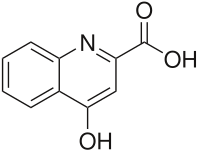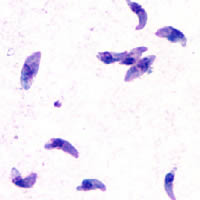
Acute liver failure increases kynurenic acid production in rat brain via changes in tryptophan metabolism in the periphery
Sign Up to like & getrecommendations! Published in 2019 at "Neuroscience Letters"
DOI: 10.1016/j.neulet.2019.02.004
Abstract: The tryptophan metabolite, kynurenic acid (KYNA), is a preferential antagonist of the α7 nicotinic acetylcholine receptor and N-methyl-d-aspartic acid receptor at endogenous brain concentrations. Recent studies have suggested that increased brain KYNA levels are involved… read more here.
Keywords: tryptophan metabolism; kyna; kynurenic acid; brain ... See more keywords

Kynurenic acid as the neglected ingredient of commercial baby formulas
Sign Up to like & getrecommendations! Published in 2019 at "Scientific Reports"
DOI: 10.1038/s41598-019-42646-4
Abstract: The global increase in resorting to artificial nutritional formulas replacing breastfeeding has been identified among the complex causes of the obesity epidemic in infants and children. One of the factors recently recognized to influence metabolism… read more here.
Keywords: milk; kynurenic acid; kyna; gain ... See more keywords

Kynurenic Acid in Schizophrenia: A Systematic Review and Meta-analysis
Sign Up to like & getrecommendations! Published in 2017 at "Schizophrenia Bulletin"
DOI: 10.1093/schbul/sbw221
Abstract: Kynurenic acid (KYNA) is an endogenous antagonist of N-methyl-D-aspartate and α7 nicotinic acetylcholine receptors that is derived from astrocytes as part of the kynurenine pathway of tryptophan degradation. Evidence suggests that abnormal KYNA levels are… read more here.
Keywords: kyna; schizophrenia; kyna levels; meta analysis ... See more keywords

Assessment of Prenatal Kynurenine Metabolism Using Tissue Slices: Focus on the Neosynthesis of Kynurenic Acid in Mice
Sign Up to like & getrecommendations! Published in 2019 at "Developmental Neuroscience"
DOI: 10.1159/000499736
Abstract: Several lines of evidence support the hypothesis that abnormally elevated brain levels of kynurenic acid (KYNA), a metabolite of the kynurenine pathway (KP) of tryptophan degradation, play a pathophysiologically significant role in schizophrenia and other… read more here.
Keywords: kynurenine; kyna; metabolism; tissue slices ... See more keywords

Nociceptive improvements and kynurenine pathway alterations with diclofenac treatment in a rat model of neuropathic pain created by partial sciatic nerve ligation.
Sign Up to like & getrecommendations! Published in 2023 at "European review for medical and pharmacological sciences"
DOI: 10.26355/eurrev_202305_32334
Abstract: OBJECTIVE: Neuropathic pain is regulated by several metabolites of the kynurenine pathway (KYNA-kynurenic acid, and QA-quinolinic acid). Diclofenac exerts analgesic and anti-hyperalgesic effects and also alters KYNA levels, indicating a potential for therapy. We aimed… read more here.
Keywords: kynurenine pathway; day; neuropathic pain; kyna ... See more keywords

Kynurenic Acid and Its Synthetic Derivatives Protect Against Sepsis-Associated Neutrophil Activation and Brain Mitochondrial Dysfunction in Rats
Sign Up to like & getrecommendations! Published in 2021 at "Frontiers in Immunology"
DOI: 10.3389/fimmu.2021.717157
Abstract: Background and Aims The systemic host response in sepsis is frequently accompanied by central nervous system (CNS) dysfunction. Evidence suggests that excessive formation of neutrophil extracellular traps (NETs) can increase the permeability of the blood–brain… read more here.
Keywords: sepsis; kyna; dysfunction; permeability ... See more keywords

Alterations in rat prefrontal cortex kynurenic acid levels are involved in the enduring cognitive dysfunctions induced by tetrahydrocannabinol exposure during the adolescence
Sign Up to like & getrecommendations! Published in 2022 at "Frontiers in Psychiatry"
DOI: 10.3389/fpsyt.2022.996406
Abstract: Introduction Cannabis abuse during adolescence is a risk factor for cognitive impairments in psychiatric disorders later in life. To date, the possible causal relationship between cannabinoids, kynurenic acid (KYNA; i.e., a neuroactive metabolite of tryptophan… read more here.
Keywords: kynurenic acid; enduring cognitive; adolescence; kyna ... See more keywords

Memory Enhancement with Kynurenic Acid and Its Mechanisms in Neurotransmission
Sign Up to like & getrecommendations! Published in 2022 at "Biomedicines"
DOI: 10.3390/biomedicines10040849
Abstract: Kynurenic acid (KYNA) is an endogenous tryptophan (Trp) metabolite known to possess neuroprotective property. KYNA plays critical roles in nociception, neurodegeneration, and neuroinflammation. A lower level of KYNA is observed in patients with neurodegenerative diseases… read more here.
Keywords: memory enhancement; memory; kyna; kynurenic acid ... See more keywords

Effects of Kynurenic Acid on the Rat Aorta Ischemia—Reperfusion Model: Pharmacological Characterization and Proteomic Profiling
Sign Up to like & getrecommendations! Published in 2021 at "Molecules"
DOI: 10.3390/molecules26102845
Abstract: Kynurenic acid (KYNA) is derived from tryptophan, formed by the kynurenic pathway. KYNA is being widely studied as a biomarker for neurological and cardiovascular diseases, as it is found in ischemic conditions as a protective… read more here.
Keywords: kynurenic acid; rat aorta; kyna; reperfusion ... See more keywords